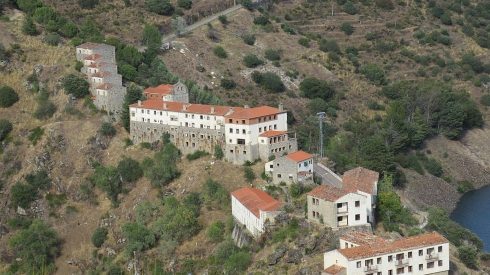AS THE end of the year approaches, and with regional and national elections planned for next year, there is currently a flurry of legislative activity in Spain’s Congress of Deputies.
Among the controversial measures being taken by the administration is a plan to reduce prison sentences for the offences of sedition and misappropriation of funds, something that is likely to benefit leaders of the Catalan independence movement.
The Spanish government is led by the Socialist Party, in coalition with leftist Unidas Podemos. The administration of Prime Minister Pedro Sánchez lacks a working majority in Congress, which means it must do deals with smaller parties to get things done.
The changes to the sedition and misappropriation of funds laws have been agreed by the government with the Catalan Republican Left (ERC).
Earlier this week the prime minister responded to the controversy that these measures have caused, particularly among the opposition, saying that they were ‘risky’ but there was ‘no other choice’.
‘We have to return confrontation and political debate to the area of politics and take it out of the courts,’ he said at a party event in Barcelona on Sunday.
‘I don’t want you to return to the fateful and sad days of 2017,’ he added, in reference to the illegal referendum in Catalonia and subsequent unilateral declaration of independence.
The changes that the government is pushing through will see the offence of sedition disappear, to be replaced by the crime of aggravated public disorder. This will see a change in jail terms from the current 10 to 15 years, down to three to five years. Anyone convicted of the new offence will be banned from public office for six to eight years rather than the current 10 to 15.
Meanwhile, the changes to the misappropriation of funds law will make the distinction between embezzlement of public money for personal gain, and when it is used for another purpose. This would affect the leaders of the 2017 independence drive, some of whom, such as former premier Carles Puigdemont – who fled Spain to avoid trial and is currently living in Belgium – are yet to face trial.

The planned changes would see the sentence for embezzlement for personal gain stay the same, two to 12 years of jail and a six to 20 year ban from public office, as well as two new offences: misappropriation of funds for ‘private use’ without personal gain (six months to three years of prison, and a ban from public office from one to four years), and another when the funds are used for something else (one to four years of jail, and two to six year bans from public office).
It is this last offence that would likely apply to the Catalan independence leaders, who used public funds to organise the illegal referendum in 2017.
A new referendum?
While the government is making concessions to the Catalan Republican Left, it has made clear that a referendum on the future of Catalonia is not on the table.
The PSOE spokesperson in Congress, Patxi Lopez, said that the party ‘would not accept any independence referendum’ in Catalonia, despite the ERC stating on Tuesday that it would double its efforts after the reforms to secure a vote.
López also pointed out that the offence of rebellion will also remain in Spain’s Criminal Code and that Article 155 of the Constitution – which was used by the central government to take temporary control of the Catalonia region after the 2017 unilateral declaration of independence – can be used again should the regional administration once again challenge Madrid.
Lopez echoed the prime minister’s words on Tuesday. ‘The government takes risks, takes political decisions, but what it is doing works,’ he said, in comments reported by Europa Press. ‘Catalonia is no longer Spain’s biggest problem, Spain is not breaking up […],’ he added.
Opposition reaction
Far-right Vox has reacted to the changes being made by the government by calling for a new vote of no confidence against the prime minister. A previous vote it called failed.
For now, the leader of the main opposition Popular Party, Alberto Nuñez Feijoo, has said that he will not oppose such a vote, but will not table one himself.

Feijoo also promised that he would scrap as many as five laws introduced by the current government if he wins power at the next general election, due to take place in late 2023.
He slammed Sánchez as exercising power like a ‘despot’ and was behaving in a way that is ‘unsuitable for a democracy’.
Read more:
- Spanish government to study more changes to Criminal Code that could benefit Catalan independence leaders
- Spain’s government proposes changes to sedition law used to prosecute Catalan independence leaders
Click here to read more Spain News from The Olive Press.








